INTRODUCTION
Inclusive societies promise more sustainable human development outcomes. This is because every member of such societies understands that they have a contribution to make, their contribution is valued, and no one should be left behind. Inclusiveness is thus a key precondition for building and sustaining peace, harmony and societal cohesion.
Yet LGBTI people in every country and development context have been denied societal inclusion and respect for their human rights. Increasingly, MPs all over the world are taking action to remedy the effects of this denial. But many who have done so face hostile, organised and highly emotional reactions from those who do not support LGBTI inclusion.
The challenges facing LGBTI people around the world – and their allies working to promote respect for their human rights and inclusion – remain formidable. Violence, abuse and stigma in many cases remain institutionalized in the laws and policies of nations. Reprisals against LGBTI people form an early warning of – and a predictable accompaniment to – the rise of authoritarianism.

CONTENTS
This handbook is organised on a modular basis. You do not have to read it all. Use the part or parts that are most relevant to you. Alternatively, download all the parts as one document. The parts are as follows:
1
Overview
This Part introduces the current situation of LGBTI people around the world and explains why it is important that MPs take urgent action to protect their human rights.
2
LGBTI Rights are Human Rights
This Part provides a knowledge base on the legal and rights frameworks most relevant to LGBTI people, and their key recommendations relevant to LGBTI human rights. It explains how you can work to protect and defend LGBTI human rights.
3
Effective Action
This Part identifies key entry points, based on global rights frameworks, for action to protect LGBTI human rights, and the most important lessons learned from progressive actions taken by MPs and parliaments around the world, including many examples of successful strategies towards reform.
4
Further Guidance
This Part provides sensitive and practical guidance on speaking about LGBTI people and their rights, including how to adapt to specific local contexts and conditions, along with practical advocacy tools and model questions to ask of government, parliament, other decision-makers and policy makers, for use in your oversight role as an MP.
CALL TO ACTION
Video message for the launch of ‘Advancing the Human Rights and Inclusion of LGBTI People: a Handbook for Parliamentarians’, 2021.
Petra de Sutter, Federal Deputy Prime Minister of Belgium
In the past few decades, we have seen a lot of progress when we look at the fight against discrimination and the rights of LGBTQIA+ people around the world. But there is still a long way to go.
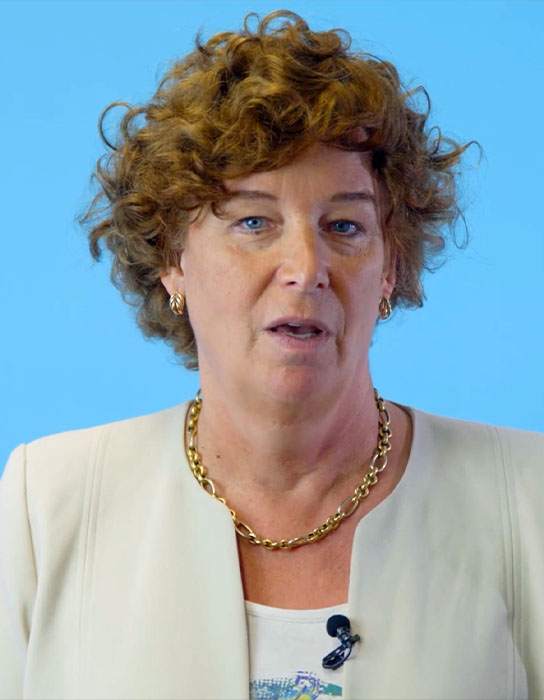
EFFECTIVE ACTION
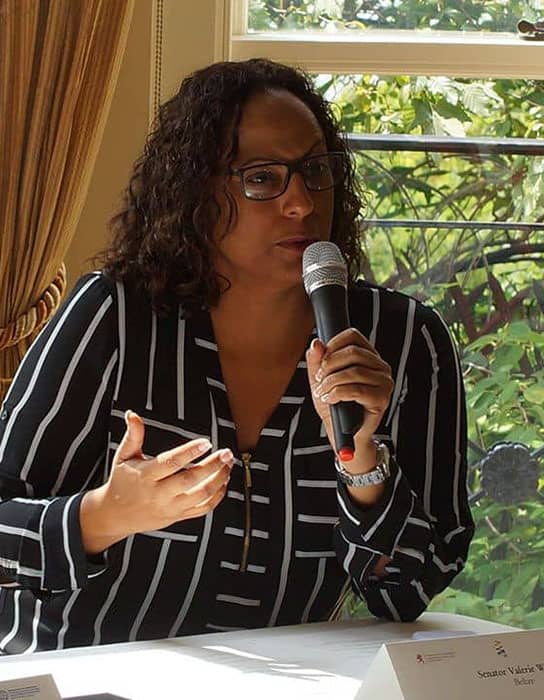
Engaging Parliamentarians as Allies
Hon. Valerie Woods, Speaker, House of Representatives, Belize
Presentation at the 2016 ILGA World Conference in Bangkok
MYTHS vs. REALITY
How to respond to myths about LGBTI people
Public opinions and comments made about LGBTI people often denigrate them, even if inadvertently, and undermine their rights. Many such comments are based on common myths. You can respond to these comments and shatter the myths from a human rights standpoint.
Think about how many of the statements you read and hear about LGBTI people deny reality – in fact, much of what is written and said is nothing but myth. You can frame appropriate, humanrights-based responses to such statements. Pay attention to how your colleagues in parliament talk about LGBTI people and how LGBTI people are portrayed in the media, and respond accordingly. Where there are local LGBTI CSOs, consult them for guidance.
-
Myth
Homosexuality is a “Western phenomenon.”
Reality: This is false.
LGBTI people exist everywhere – in all countries, among all ethnic groups, at all socioeconomic levels and in all communities across the world, and have done for a very long time.
What is true is that many of the laws that continue to criminalize and punish LGBTI people in many countries are Western in origin and a legacy of colonialism. This remains the case, even though most of those same former colonial powers no longer have these same discriminatory laws in place in their own countries, having replaced them with legislation that promotes equality -
Myth
Being LGBTI is incompatible with religion and faith (or a specific religion); it goes against God.
Reality: This is false.
See section 8.3, “Conversations about LGBTI issues and faith”, which elaborates on the many arguments that can be used to counter this myth.
-
Myth
Reality: Depriving LGBTI people of their human rights can be justified on grounds of religion, culture or tradition.
Reality: Discrimination on the basis of SOGIESC can never be justified on any basis.
Human rights are universal: every human being is entitled to the same rights, no matter who they are or where they live. History, culture and religion are all very important, but all States, regardless of their political, economic and cultural systems, have a legal duty to promote and protect the human rights of all. This includes LGBTI people.
Religious freedom gives us the right to hold our own beliefs (or not to), but it does not give us the right to impose our views on others, including by discriminating against or otherwise harming them. -
Myth
LGBTI people are “not normal”; they are a creation of the modern age; being LGBTI is a “trend”
Reality: SOGIESC are not “current trends”.
Almost every country has a recorded history of people whose identities, diverse bodily manifestations and behaviours bear close resemblance to what we call today heterosexuality, bisexuality, homosexuality, intersex and transgender identities. Equally, people with variations of sex characteristics display natural and diverse bodily manifestations that have always existed within the human species.
LEGAL FRAMEWORK
Part 2 of the Handbook provides a knowledge base on the legal and rights frameworks most relevant to LGBTI people, and their key recommendations relevant to LGBTI human rights. It explains how you can work to protect and defend LGBTI human rights.
Use these checklists to take stock of where your country stands in terms of recognizing the rights of LGBTI people, and whether it has the appropriate legal instruments and policies to fully protect those rights addressing sexual orientation, gender identity and sex characteristics.
The UN treaty bodies and Universal Periodic Review
Each State party to a treaty has an obligation to take steps to ensure that everyone in the State can enjoy the rights set out in the treaty. There are 10 treaty bodies attached to nine core human rights treaties and one optional protocol.
The 2030 Agenda for Sustainable Development and the Sustainable Development Goals
In September 2015, 193 Member States of the UN unanimously adopted the 2030 Agenda and its SDGs26 as the global framework for efforts to end poverty, fight inequality and injustice and tackle climate change by 2030.
Independent Expert on protection against violence and discrimination based on sexual orientation and gender identity
The Independent Expert intervenes in various ways: by issuing urgent appeals and letters of allegation to States concerning cases of violence and discrimination against LGBTI people, undertaking fact-finding country visits, and presenting thematic reports to the Human Rights Council and the UN General Assembly.
The Yogyakarta Declaration and Principles
The Yogyakarta Declaration and Principles are particularly relevant to advancing the human rights and inclusion of LGBTI people, and a key resource for advocacy.
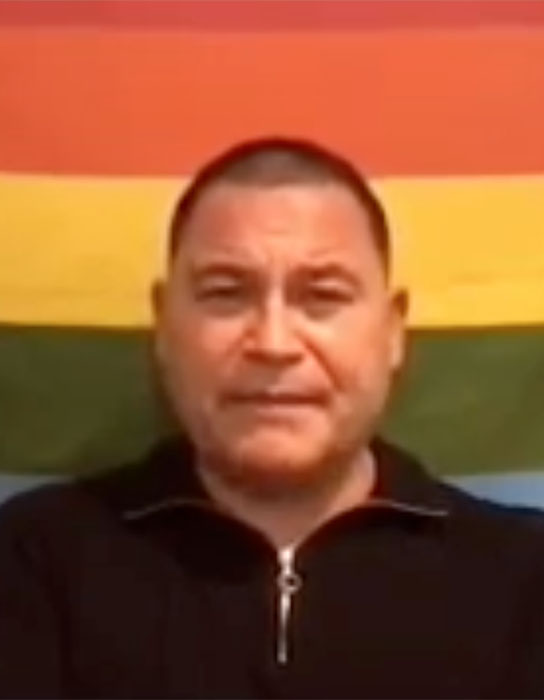
Global Lead Inclusive Processes and Institutions, UNDP
Charles Chauvel
Address to Interparliamentary Plenary Assembly, Copenhagen 2021 Human Rights Forum, August 2021
ADDITIONAL RESOURCES
Inclusion of lesbian, gay, bisexual, transgender, intersex and queer (LGBTIQ+) persons in the world of work: A learning guide
The Case for Decriminalization of Consensual Same-Sex Relations
Reform of Discriminatory Sexual Offences Laws in the Commonwealth and Other Jurisdictions - Case Study of Seychelles (Human Dignity Trust)
Developments in strategic litigation on SOGI since 2017 (Human Dignity Trust)
Report: Legislating to Address Hate Crimes against the LGBT Community in the Commonwealth, Equality & Justice Alliance (2019)
SOGI country profiles (Human Rights Watch)
Global overview of anti-LGBT laws (Human Rights Watch)
Open for Business 2018 report: Strengthening the economic case for LGBTI inclusion
Report of the Independent Expert on protection against violence and discrimination based on sexual orientation and gender identity (May 2018)
Report: Living Free and Equal, United Nations (2016)
Report: Born Free and Equal, Office of the United Nations High Commissioner for Human Rights (2012)
UN HRC Resolution: Protection against violence and discrimination based on sexual orientation and gender identity
Report A/HRC/19/41 on discriminatory laws and practices and acts of violence against individuals based on their sexual orientation and gender identity
Update of report A/HRC/19/41 on discriminatory laws and practices and acts of violence against individuals based on their sexual orientation and gender identity
Report: Sexual Orientation, Gender Identity and Expression, and Sex Characteristics at the Universal Periodic Review, ARC International, the International Bar Association and ILGA (November 2016)
Report: Violence against Lesbian, Gay, Bisexual, Trans and Intersex Persons in the Americas, Inter-American Commission on Human Rights (November 2015)
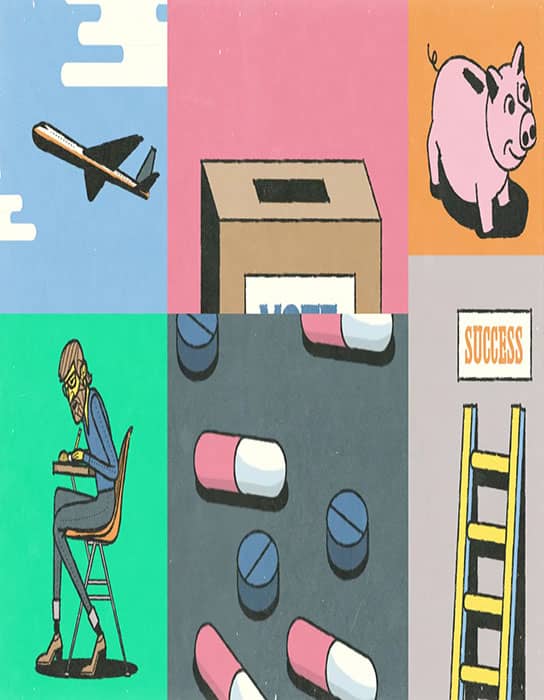
Open Society Foundations
No Government Should Get to Decide This
The majority of trans people around the world cannot obtain official documents that match their identity. And without these documents, it's nearly impossible to do basic things like enroll in school, get a job, see a doctor, travel, or vote.
GLOSSARY
-
A
Aromantic
Someone who does not experience romantic attraction to anyone.
Asexual
Someone who does not experience sexual attraction towards anyone.
-
B
Biphobia
The fear, unreasonable anger, intolerance or/and hatred toward bisexuality and bisexual people. The phobia may exist among heterosexuals, gay men, lesbians or bisexuals themselves and is often related to multiple negative stereotypes of bisexuals centered on a belief that bisexuality does not exist and on the generalization that bisexuals are promiscuous.
Bisexual
A person who is emotionally and/or sexually attracted to persons of more than one sex.
-
C
Cisgender:
A term referring to persons whose gender identity and gender expression match the sex they were assigned at birth and the social expectations related to their gender.
Comprehensive sexuality education (CSE)
A curriculum-based process of teaching and learning about the cognitive, emotional, physical and social aspects of sexuality. It aims to equip children and young people with knowledge, skills, attitudes and values that will empower them to: realize their health, well-being and dignity; develop respectful social and sexual relationships; consider how their choices affect their own well-being and that of others; and understand and ensure the protection of their rights throughout their lives.
Conversion therapy
An umbrella expression to refer to any sustained effort to modify a person’s sexual orientation, gender identity or gender expression. Other terms include: “reparative therapy”, “gay cure”, “ex-gay therapy”, “gender critical therapy” and Sexual orientation, gender identity or gender expression change efforts (SOGIECE) (ILGA). Conversion therapy is banned is several countries and has been defined as torture by several national and international instances, such as the UN expert on SOGI.
-
E
Endosex (or dyadic)
A person who was born with sex characteristics that fit typical gender-binary notions of or social expectations for male or female bodies (e.g. non-intersex). An endosex person may identify with any gender identity and any sexual orientation.
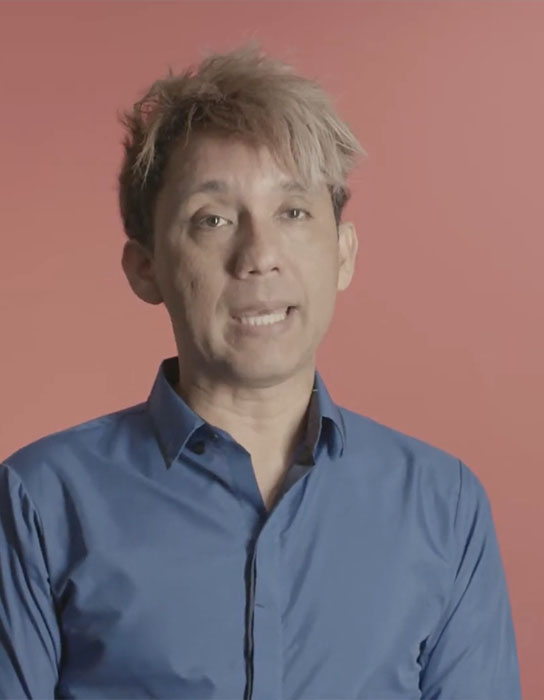
United Belize Advocacy Movement
Caleb Orozco - Belize (TCEN)
Caleb Orozco was the chief litigant in a case successfully challenging the anti-sodomy laws of Belize and the co-founder of the only LGBT advocacy group in the country.
SIGN UP
Subscribe
Join our
Mailing List
Receive updates direct to your inbox.
CONTACT
CONTACT US
Questions
or
Feedback

